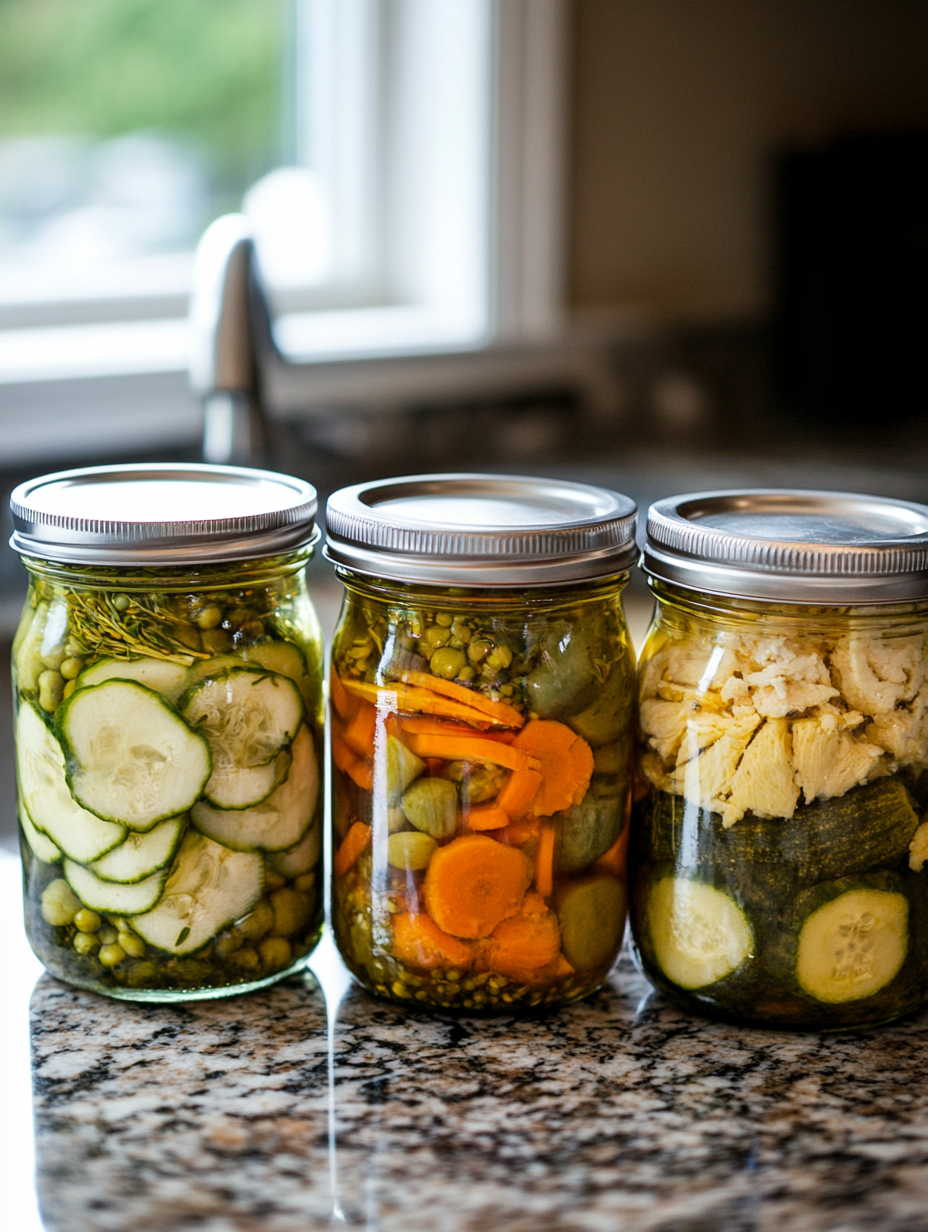Fermentation has long been a cornerstone of culinary traditions, but have you ever thought about taking it to the next level? Weird fermenting recipes offer a playground for creativity, blending science and art to produce unique flavors that surprise and delight. Let’s embark on an adventure into the strange yet fascinating world of unconventional ferments.
What is Fermentation? A Brief Overview
H2: The Science Behind Fermentation
Fermentation is more than a simple kitchen process—it’s a transformative art. When microorganisms like bacteria or yeast interact with food, they break down sugars into alcohol or acids. This ancient preservation method not only extends the shelf life of food but also enhances its nutritional content and creates bold, complex flavors.
Why It Matters:
- Natural Preservation: Keeps food fresh without chemicals.
- Flavor Boosting: Develops tangy, umami-rich profiles.
- Gut Health Benefits: Probiotic-rich ferments improve digestion and immunity.
H3: Traditional vs. Unconventional Fermentation
While classics like yogurt, sourdough, and kombucha dominate the scene, unconventional recipes push the boundaries by using unusual ingredients. Think fermented fruits, herbs, or even meats—a bold way to reinvent familiar flavors.
Top Weird Fermenting Recipes to Try
H2: 1. Fermented Mango Hot Sauce
A tropical twist with a fiery edge, this recipe merges sweetness with heat to create a hot sauce that’s perfect for adventurous palates.
Ingredients:
| Ingredient | Quantity |
|---|---|
| Ripe mangoes | 3 large |
| Garlic cloves | 4, minced |
| Chili peppers | 2-3, chopped |
| Salt | 1 tbsp |
| Water | 1 cup |
Steps:
- Blend mangoes, garlic, and chili peppers into a smooth paste.
- Add salt and transfer the mixture into a sterilized jar.
- Cover with a loose lid and ferment for 5-7 days at room temperature.
- Strain, bottle, and refrigerate.
H2: 2. Beet Kvass
This earthy, vibrant drink is a powerhouse of nutrition and a testament to the beauty of root vegetables.
Ingredients:
| Ingredient | Quantity |
| Beets (cubed) | 3 medium |
| Salt | 2 tsp |
| Water | 1 liter |
| Ginger (optional) | 1 slice |
Steps:
- Add beets and ginger to a jar.
- Dissolve salt in water and pour over the beets.
- Ensure beets are submerged; ferment for 2-3 days.
H2: 3. Fermented Garlic Honey
This sweet and savory combination enhances marinades, dressings, and even your immune system.
Ingredients:
| Ingredient | Quantity |
| Garlic cloves | 1 cup |
| Raw honey | 1 cup |
Steps:
- Peel and slightly crush garlic cloves.
- Place them in a jar and cover with raw honey.
- Seal and ferment for 2 weeks, stirring occasionally.
Tips for Mastering Weird Ferments
H2: Tools and Techniques for Success
Creating ferments at home is simple with the right setup and a few key practices.
Essential Equipment:
- Glass Jars with Airlocks: Prevent contamination while allowing gases to escape.
- Fermentation Weights: Keep ingredients submerged under brine.
- pH Strips: Monitor acidity levels for safety.
Key Tips:
- Sterilize Everything: Ensure tools and jars are thoroughly clean to prevent bad bacteria.
- Control Temperature: Ferments thrive in cool, stable environments (65-75°F).
- Taste Often: Sample your ferments regularly to achieve your desired flavor profile.
H3: Troubleshooting Common Issues
Even seasoned fermenters encounter hiccups. Here’s how to handle them:
- Too Sour? Dilute with fresh ingredients or shorten fermentation time.
- Mold Growth? Always keep ingredients fully submerged under brine to avoid contamination.
FAQ: Weird Fermenting Recipes Demystified
H2: Frequently Asked Questions
H3: Are weird ferments safe to eat?
Absolutely! When prepared with proper hygiene and fermentation techniques, they are both safe and delicious.
H3: How do I know when fermentation is complete?
Taste and smell are your best guides. A tangy, aromatic result usually signals completion.
H3: Can I use unconventional ingredients in any ferment?
Yes! Feel free to experiment, but always research compatibility and safety to ensure success.
Conclusion
Weird fermenting recipes are a gateway to discovering flavors you’ve never experienced before. From the zesty kick of mango hot sauce to the earthy richness of beet kvass, these creations promise to excite your palate and expand your culinary repertoire. Don’t be afraid to experiment—the results are often magical!

